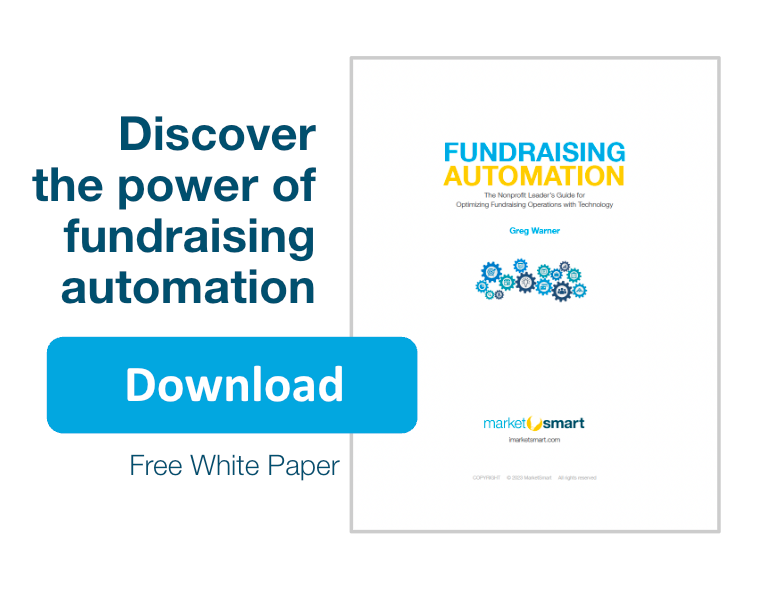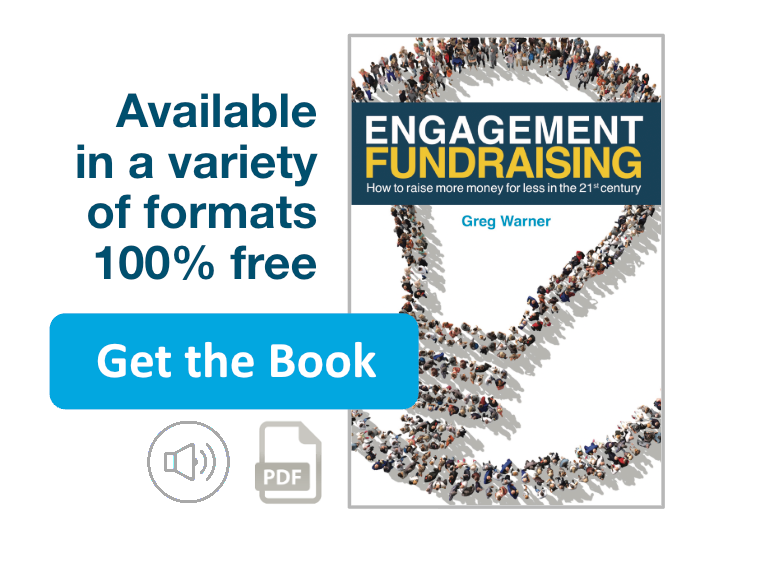If something about fundraising makes you uncomfortable, it isn’t because there’s something wrong with you but because there’s something wrong with the way you’re fundraising, or being expected to. Fundraising should be as easy as asking a friend to hang out. Chances are they’ll say yes, if not when you ask, then somewhere down the road. It’s not a matter of if but when.
Of course, fundraising is not about you personally but the cause you represent. The request is not to hang out but to help. Still, that should be entirely comfortable if:
- You know they are philanthropic
- They have a strong affinity for your cause
- You can point to a difference they could make
- You’re requesting them to get behind something that will be rewarding for them
- You won’t drop them after they commit
- Your organization won’t disappoint them
Unease with fundraising intensifies with every box that can’t be certainly checked. And so it should be. To ask under lesser conditions is to not only risk the loss of an organizational friend but to leave that person feeling meh about the experience, if not disenchanted or misled.
And in how many instances are people being asked to raise funds without being able to check all or even some of those boxes? If they are the kind of person you should have raising funds for your organization, it makes them feel hesitant if not compromised, or outright queasy.
Oh, but some say, “That’s just major gift fundraising, right? Those conditions don’t apply to retail fundraising like what we do in done in annual giving, right?” No, they still apply. We have wasted so much time, money, and talent trying to raise money from strangers. We would be far more efficient if we focused first on making organization friends and better defining where differences could be made before we asked. We’d go from icky to sticky.
If you are this person, pay attention to your feelings. Do all you can to create conditions that will make you more comfortable with your duties. Speak out about the parts that you think are organizationally limiting and self-limiting but do so with respect, professionalism, and real concern for the organization’s mission and standing. Assert that there is a better way, one in which community can be built as support is secured, not the inverse, which is what most have been witnessing for the past 30 years.
When you speak out with caring conviction, whether within your organization or professional circles, watch how many people respond and resonate with what you are advocating. Watch how many kindred spirits you find.
No, the field won’t suddenly change. Some will ignore you. Some will say that organizational imperatives leave you with no other choice but to raise money the same old way. But, please believe me on this one point: the more you work at making yourself comfortable with this work, the more positive change you will bring about, the more kindred spirits you will find.
I know. That is my story.
Jim Langley is the president of Langley Innovations. Langley Innovations provides a range of services to its clients to help them understand the cultural underpinnings of philanthropy and the psychology of donors and, with that knowledge, to develop the most effective strategies and tactics to build broader and more lasting communities of support. Jim has authored numerous books including his most recent book, The Future of Fundraising: Adapting to New Philanthropic Realities, published by Academic Impressions in 2020.
Related Resources:
- Webinar: 4-Step Process for “Reimagining Fundraising Operations”
- The Power of Building Relationships: Why Donors Need Good Fundraisers
- Most Senior Fundraisers Don’t Need Training; They Need Treatment
- How Fundraising Overcomplicated Philanthropic Facilitation





Excellent articles and ideas
Thank you